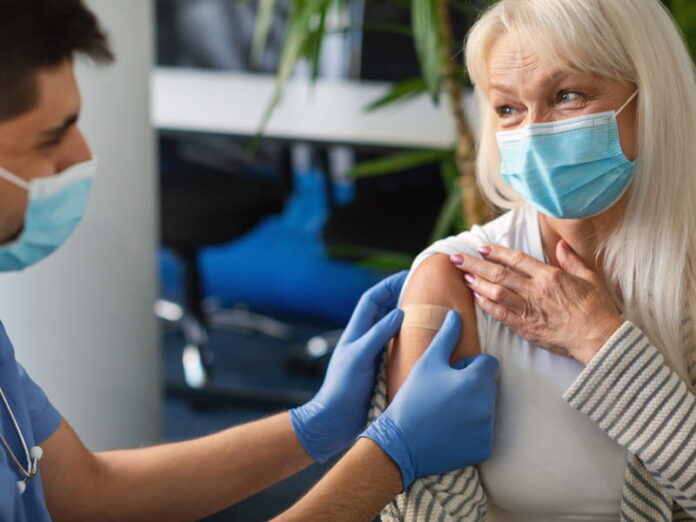As the chilly winds of autumn sweep across Australia, signaling the onset of flu season, health authorities are sounding the alarm. With flu rates surging in parts of the country, Australians are being urged to roll up their sleeves and get their annual flu shot.
Professor Paul Kelly, head of the interim Australian Centre for Disease Control, emphasizes the importance of vaccination, particularly for those most vulnerable to complications. Free vaccines are now readily available for these high-risk groups, accessible through general practices, pharmacies, immunisation clinics, and even workplaces.
Highlighting the gravity of the situation, Kelly points out that in the preceding year, the highest flu infection rates were observed among children under 14 years old. However, vaccine uptake in this demographic remained disappointingly low. This underscores the urgent need for parents to prioritize their children’s immunization.
In New South Wales (NSW), Australia’s most populous state, health data reveals a worrying trend of rising flu rates. The latest respiratory surveillance report indicates a 16% increase in influenza diagnoses compared to the previous year, with over 4,700 cases recorded in the past four weeks alone.
Dr. Kerry Chant, NSW’s Chief Health Officer, expresses concern over the potential impact on young children, recalling the spike in emergency department visits and intensive care admissions due to flu-related complications observed in the previous year. Urging proactive measures, Chant emphasizes the importance of scheduling free flu vaccinations for children under five years old.
The surge in flu-related hospital admissions in NSW is starkly evident, with a notable increase compared to the same period in the previous year. Despite these concerning statistics, there’s a glimmer of hope in the effectiveness of the 2023 flu vaccine, which significantly reduced hospitalizations and GP visits.
Professor Kelly underscores the heightened risk faced by children under five, citing last year’s tragic toll of flu-related deaths, including nine children under 16. These sobering statistics serve as a stark reminder that the flu is not a mere inconvenience but a potentially life-threatening illness, particularly for vulnerable populations.
Addressing misconceptions, Kelly emphasizes that the flu should not be trivialized as a common cold. It is a serious viral infection capable of causing severe illness, hospitalization, and even death among otherwise healthy individuals. The message is clear: vaccination is the best defense against the flu’s potentially devastating consequences.
Everyone aged six months and older is urged to get vaccinated, with priority given to high-risk groups, including young children, pregnant individuals, Indigenous Australians, the elderly, and those with certain medical conditions. Importantly, for convenience and efficiency, simultaneous administration of flu and COVID-19 vaccines is recommended where appropriate.
As Australians brace themselves for another flu season amidst the ongoing challenges of the COVID-19 pandemic, vaccination remains a vital tool in safeguarding public health. By heeding the call to get vaccinated, individuals can protect themselves, their families, and their communities from the potentially serious consequences of influenza.
As the chilly winds of autumn sweep across Australia, signaling the onset of flu season, health authorities are sounding the alarm. With flu rates surging in parts of the country, Australians are being urged to roll up their sleeves and get their annual flu shot.
Professor Paul Kelly, head of the interim Australian Centre for Disease Control, emphasizes the importance of vaccination, particularly for those most vulnerable to complications. Free vaccines are now readily available for these high-risk groups, accessible through general practices, pharmacies, immunisation clinics, and even workplaces.
Highlighting the gravity of the situation, Kelly points out that in the preceding year, the highest flu infection rates were observed among children under 14 years old. However, vaccine uptake in this demographic remained disappointingly low. This underscores the urgent need for parents to prioritize their children’s immunization.
In New South Wales (NSW), Australia’s most populous state, health data reveals a worrying trend of rising flu rates. The latest respiratory surveillance report indicates a 16% increase in influenza diagnoses compared to the previous year, with over 4,700 cases recorded in the past four weeks alone.
Dr. Kerry Chant, NSW’s Chief Health Officer, expresses concern over the potential impact on young children, recalling the spike in emergency department visits and intensive care admissions due to flu-related complications observed in the previous year. Urging proactive measures, Chant emphasizes the importance of scheduling free flu vaccinations for children under five years old.
The surge in flu-related hospital admissions in NSW is starkly evident, with a notable increase compared to the same period in the previous year. Despite these concerning statistics, there’s a glimmer of hope in the effectiveness of the 2023 flu vaccine, which significantly reduced hospitalizations and GP visits.
Professor Kelly underscores the heightened risk faced by children under five, citing last year’s tragic toll of flu-related deaths, including nine children under 16. These sobering statistics serve as a stark reminder that the flu is not a mere inconvenience but a potentially life-threatening illness, particularly for vulnerable populations.
Addressing misconceptions, Kelly emphasizes that the flu should not be trivialized as a common cold. It is a serious viral infection capable of causing severe illness, hospitalization, and even death among otherwise healthy individuals. The message is clear: vaccination is the best defense against the flu’s potentially devastating consequences.
Everyone aged six months and older is urged to get vaccinated, with priority given to high-risk groups, including young children, pregnant individuals, Indigenous Australians, the elderly, and those with certain medical conditions. Importantly, for convenience and efficiency, simultaneous administration of flu and COVID-19 vaccines is recommended where appropriate.
As Australians brace themselves for another flu season amidst the ongoing challenges of the COVID-19 pandemic, vaccination remains a vital tool in safeguarding public health. By heeding the call to get vaccinated, individuals can protect themselves, their families, and their communities from the potentially serious consequences of influenza.


